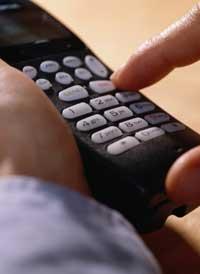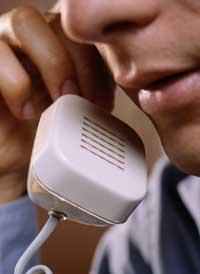Mobile key
How many times has it happened that the day before you forgot to charge the battery of the mobile phone and you could not make calls? If you are one of those who rides the mobile every day, you have surely started to call more than once and you have heard the signal when emptying your battery of bip, bip, bip…
If the call is not very important, it is not so easy to forgive the indifference of the eve in an emergency. To overcome these situations, experts have had the idea of applying an old system to mobile phones, a mobile phone in which the battery will be loaded with key.
Battery charging with key

The advantages of turnkey appliances are evident. Commissioning is October and does not require additional installation, electricity or chargers. In addition, it is never necessary to acquire new batteries and in some times, or rather, in some places, it can change life.
The first revolutionary apparatus to operate with a key was the radio. Because the AIDS virus was spreading throughout Africa, Englishman Trevor Baylis had the idea of distributing the radios that operated with the key to transmit the information to the entire population. This did not require any infrastructure and was enough to power the key for 30 seconds to listen to the radio for 14 minutes. This good idea had great success and not only in Africa. Also in the West around a million radios of this type were sold for places where there are no sockets, such as orchards or campsites. Later this idea has been applied to music devices or mobile phones, but it has never been developed.
The problem is that we have to be giving the key over and over again. The radio does not consume much energy and just give the key for a minute to listen to the radio for half an hour. On the contrary, with the one-minute key to a luminaire that works with this system, you get a light of only six minutes.
And let's not say about the energy consumption of a computer. In an hour a computer consumes 126.000 joules and to obtain that energy would have to act for three minutes on a static bike. Of course, although exercise practice is healthy, a system of these characteristics could put the nerves to more than one.
As for mobile phones, it seems impossible for this system to completely replace current batteries, but it can be a suitable emergency solution. The mobile developed by Freeplay and marketed by Motorola is able to power the key for 30 seconds and talk or be two hours for 6 minutes.
Small and discreet key

Motorola has prepared a size key and design for modern mobiles. In addition, if the radio was to sound immediately after turning on the key, the battery is charged on the mobile phones and the power is used when desired.
But in addition to the design the system is being updated. The English Howard Atkin has developed a powerful shaving system from electronic machines to computers. In your system the energy is also generated by activating the key, but instead of charging the batteries, the energy is stored in a supercapacitor. According to Atkin, his system is more efficient than that of Freeplay, demonstrating that you could listen to a 90-minute radio program acquired in any store and turning on the key for a minute.
Supercapacitors, like conventional capacitors, store energy, but their capacity is one billion times greater. The storage capacity of more loads is due to carbon powder electrodes. They have the same value as batteries, but are more efficient than batteries; they return 85% of the energy absorbed by batteries and supercapacitors 92%.
According to Atkin, this system is applicable to any device that works with batteries and although first of all they will bring out the lights and radios that use this system, during this year mobile phones, music devices and other devices will be marketed.
To balance the development of the world?

It is clear that the key drive system can be effective and can replace current battery chargers. But remember that the initial idea of Trevor Baylis was to introduce technology in undeveloped countries. The system is currently improving, but do producers think of poor people?
Unfortunately, this system is planning a new market and all the initial good intentions have already been launched. There are people rich in the oblivion of the distant population and in the vision of all the big companies.
Sony, Philips and Aiwa do not sell radios that use this system in developing countries and, in addition, have no intention of starting to do so.
Motorola's mobile phone charger can only be purchased in Europe and North America, and if you want to expand worldwide, you would first have to adapt the price to the pockets of the Bangladeshi farmer. John Hutchinson, of the Freeplay’s company, has stated that they are trying to develop a cheaper system, but surely it will not be this year.
The new system, therefore, far from ignoring the initial good intentions and changing the way of life of the inhabitants of distant Africa, will change that of the richest Europeans and Americans.
Published in 7K.
Buletina
Bidali zure helbide elektronikoa eta jaso asteroko buletina zure sarrera-ontzian











